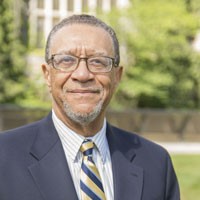How to Foster a Culture of Learning, Talent Development, and Inclusion for the Common Good
By William Collins
Despite concern about the rising cost of higher education and its value, the need for college-educated workers is more important than ever. If anything, the need for postsecondary education will only grow as society relies increasingly on technology in everyday life (Merisotis, 2015), and as other countries challenge our economic competitiveness.

College-educated community members contribute to our economic competitiveness in a variety of ways. They enjoy greater job security, have higher average incomes, and are more engaged in civic affairs. These are among the reasons that the APLU – along with the Lumina Foundation, the College Board, and numerous other groups – have endorsed the call to increase the college attainment level in the United States to 60 percent by 2025. APLU’s Project Degree Completion represents public universities’ contribution to this goal.
Yet many of the young people who can advance the college completion agenda are not even applying to college, let alone enrolling (Hoxby & Avery, 2012; Carr & Johnson, 2017). These are mainly first generation students, largely from lower-income families, and often underrepresented minorities. Many consider college to be out of reach given family finances; others simply do not envision themselves as college material. The vast majority, however, are simply unfamiliar with the process of applying to and enrolling in college, especially at selective colleges and universities. As a nation, we need to do more to inform students about the opportunities for postsecondary education to develop the highly skilled and innovative workforce necessary to insulate us from the winds of economic change churning on the horizon.
To address this challenge, the University of Michigan – like many colleges and universities – has created a variety of initiatives to promote college awareness, aspiration, and access among younger students. A cursory sampling of such initiatives reveals mentoring programs, summer academic development programs, after-school enrichment opportunities, and STEM activities ranging from robotics competitions to research laboratory internships. Examples of the kinds of initiatives offered at the University of Michigan can be found on our website. Such efforts engage students in the kinds of activities that help them envision themselves in college and gain insights about what is required to be successful academically.
That the higher education community recognizes its role in increasing college aspiration is a necessary but not sufficient to reach the 60 percent goal. Indeed, the success of such efforts depends on community buy-in and participation as well. Parents, neighbors, community organizations, and businesses also need to cultivate the social capital that can support college aspiration among students without a college-going tradition in their families. Approaches for doing so abound: colleges and universities can advance the effort by reaching out to partner with schools, community organizations, and local businesses to promote the benefits of college attainment. Collaborations that emphasize college aspirations are also critically important, such as participating in College Goal Sunday to promote FAFSA completion, supporting college tours to acquaint prospective students with the range of colleges available, or partnering with local college access networks to engage government officials and professionals to sponsor career information events.
Advancing the public good requires providing opportunities for all, a workforce with skills and abilities matched to society’s needs, and a knowledgeable, informed, and civically engaged community. Postsecondary education advances all these traits. The best way to advance the public good is to reach out to foster a culture of learning that develops talent, is broadly inclusive of all segments of society, and cultivates a supportive environment within our communities. The collective impact of such efforts informs students about their options, engages them intellectually, and inspires them to strive for success through higher education.
___________
William Collins is the executive director of the Center for Educational Outreach at the University of Michigan.
References
Carr, R. O. & Johnson, D. (2017) Working class to college: The promise and peril facing blue-collar America. Lockport, IL: GSBF Media.
Merisotis, J. (2015) America needs talent: Attracting, educating & deploying the 21st century workforce. New York: Rosetta Books.
Hoxby, C. & Avery, C. (2013). The missing “One-Offs”: The hidden supply of high-achieving, low-income students. Brookings Papers on Economic Activity, Spring 2013. Washington, DC: The Brookings Institution. Retrieved from https://www.brookings.edu/bpea-articles/the-missing-one-offs-the-hidden-supply-of-high-achieving-low-income-students/
- Commission on Economic & Community Engagement
- Council on Engagement & Outreach
- Economic Development & Community Engagement



Stay Connected
X (formerly Twitter)
Facebook
YouTube
LinkedIn
RSS